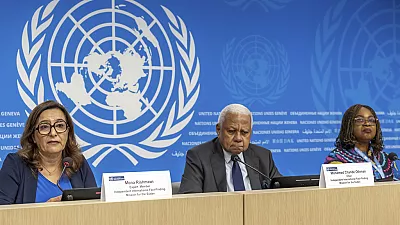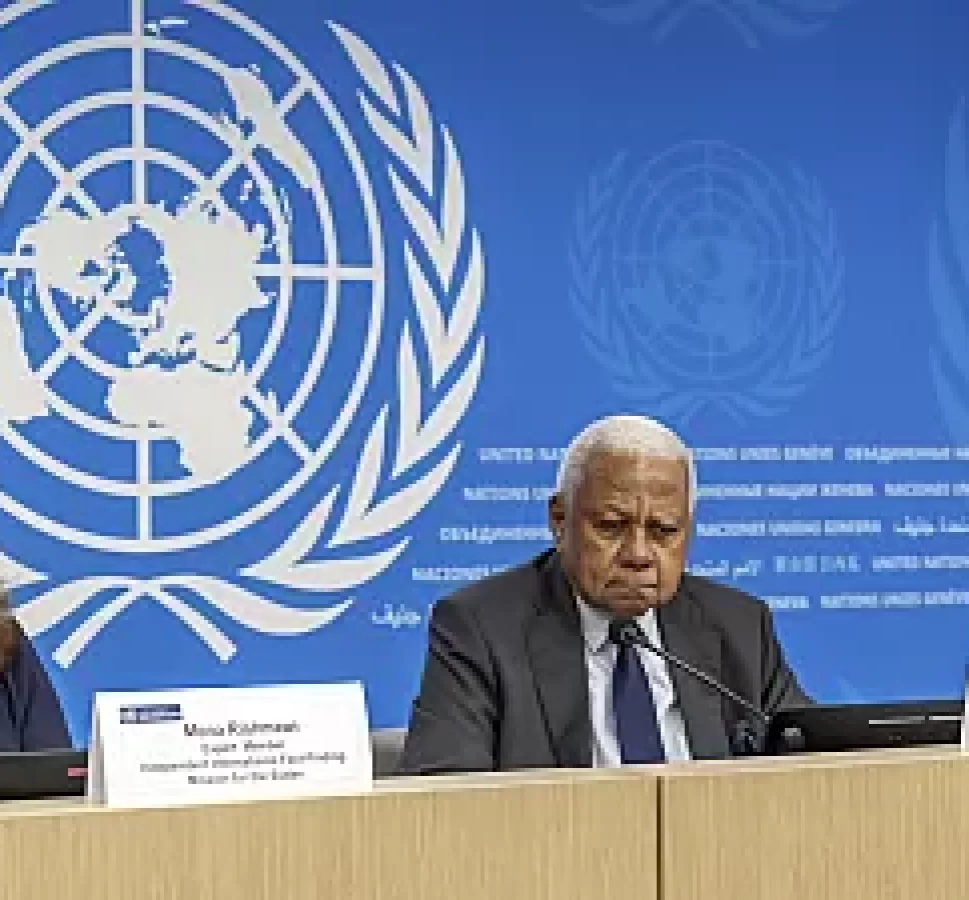
U.N.-backed human rights investigators on Friday urged the creation of an “independent and impartial force” to protect civilians in Sudan’s war, blaming both sides for war crimes including murder, mutilation and torture and warning that foreign governments which arm and finance them could be complicit.
The fact-finding team, in their first report since being created by the U.N.’s main human rights body last October, also accused the paramilitary Rapid Support Forces, which are fighting Sudan’s army, and its allies of crimes against humanity including rape, sexual slavery and persecution on ethnic or gender grounds.
“The people of Sudan have suffered greatly, and the violations against them must stop. This cannot be done without ending the fighting,” Mohamed Chande Othman, the chair of the team, told a news conference.
Expansion of Arms Embargo
The experts called for the expansion of an arms embargo on Sudan’s long-restive western Darfur region to the entire country.
The findings from the team mandated by the 47-country Human Rights Council come as more than 10 million people have been driven from their homes — including over 2 million to neighbouring countries — and famine has broken out in one large camp for displaced people in Darfur.
The conflict that erupted in April last year has killed untold thousands of people, and humanitarian groups are struggling to gain access to people in need. In December, the U.N. Security Council voted to end the world body’s political mission in the country under pressure from the military leadership.
While the killings, displacements and forced starvation have been long known, the call for the creation of an independent force marks the latest sign of desperation from rights advocates both within the country and abroad to halt the bloodshed, displacement and food crisis.
“Given the failure of the parties to protect civilians so far, the fact-finding mission recommends the deployment of an independent and impartial force with a mandate to protect civilians in Sudan,” the team’s report said.
Ambiguity Regarding the Independent Force
The experts did not specify what might make up that force, nor did they say which countries might be complicit in the crimes through their backing of rival sides. Sudan’s military has accused the United Arab Emirates of supporting the RSF, a claim the Gulf country has denied.
Neighboring Egypt is among the backers of Sudan’s armed forces.
“The fact-finding mission considers that fighting will stop once the arms flow stops,” the report said. It called for an immediate end to funneling weapons, ammunition and other support to any side, “as there is a risk that those supplying arms may be complicit in grave violations of human rights and humanitarian law.”
The experts focused on January and August this year. They visited three neighboring countries and heard testimonies from over 180 survivors, relatives, and witnesses to the conflict that has now spread to 14 of Sudan’s 18 states.
Joy Ngozi Ezeilo, a team member, said conflict-related sexual violence had a “long and tragic history” in Sudan, and civilians — overwhelmingly women and girls — “were, and continue to be, targeted with sexual violence in particular rape (and) gang-rape by both parties to the conflict.
International Efforts and Mediation
Earlier this month, talks in Geneva convened by the United States, Switzerland and Saudi Arabia made some headway in getting aid into Sudan. Still, mediators lamented the lack of participation of Sudan’s armed forces. Egypt, the UAE, the African Union and the United Nations were also involved in the talks.
The team has little power to affect events on the ground in what the U.N. has called the world’s worst humanitarian crisis. Its report mainly serves to train a spotlight on rights abuses and violations for the world community and help inform International Criminal Court prosecutors.
Othman, speaking to The Associated Press, said the team had not compiled “concrete evidence” about which countries were funnelling weapons and money to the rival sides beyond what they had seen in media reports, but that the issue was “worth investigating.”
“It should be assigned to some person or some agency to look into it, because it is serious in the context of the protracted war in Sudan,” he said.






